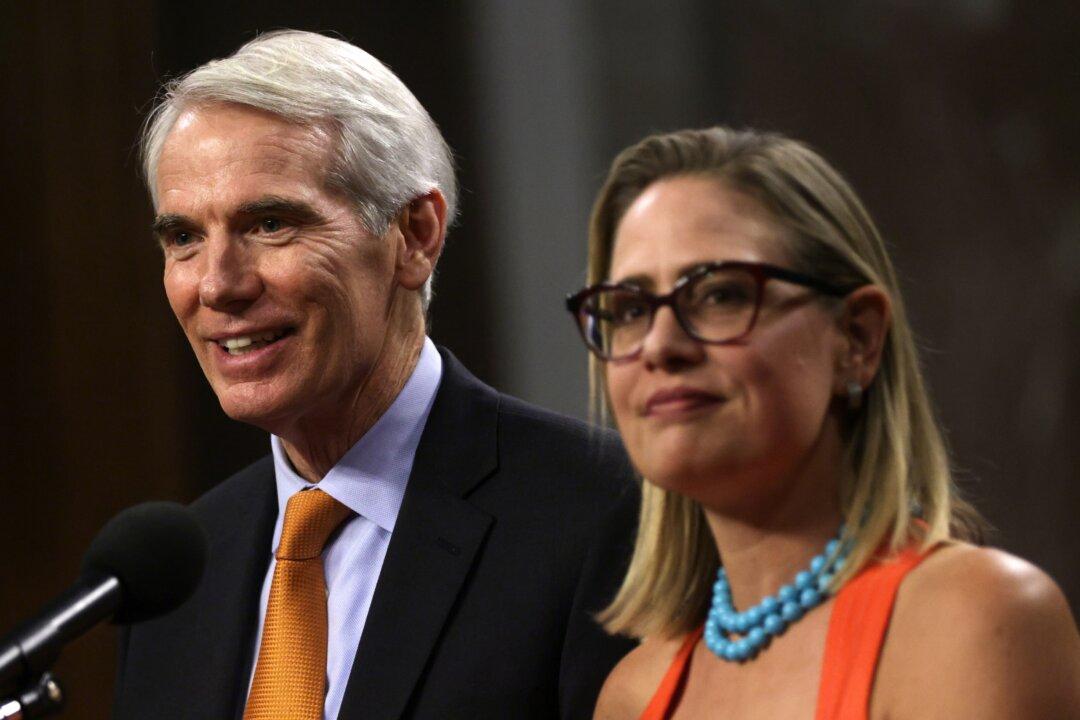Sen. Kyrsten Sinema (I-Ariz.) revealed why she left the Democratic Party late last year during a Tuesday discussion at the World Economic Forum in Davos, Switzerland.
Sinema said that she considered herself to be an independent lawmaker long before she switched her party affiliation in December. Because of heightened political polarization in recent years, she felt the need to break away from the party.





